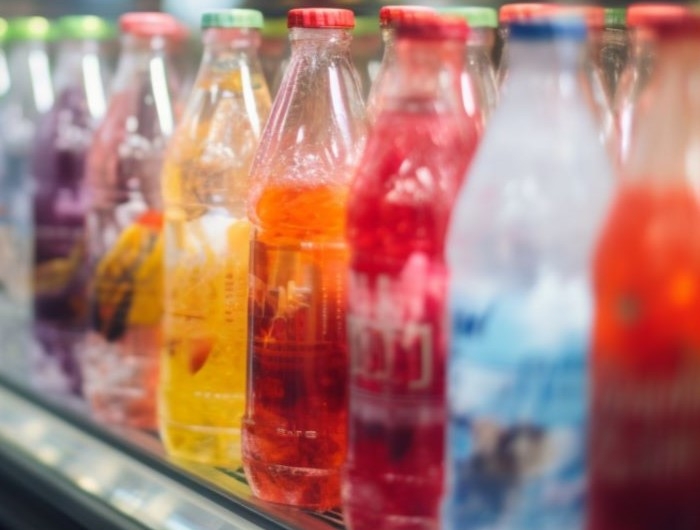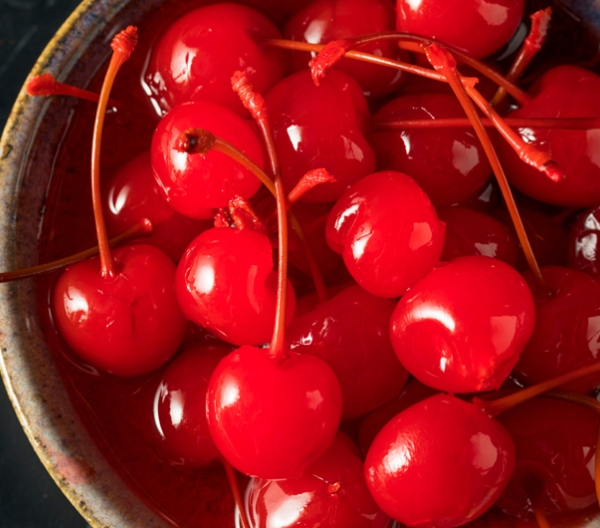BVO: Why the FDA might finally ban brominated vegetable oil

Muhammad Shoaib - stock.adobe.com.
Brominated vegetable oil, sometimes listed as BVO on product labels, was recently banned from foods and beverages sold in California. As the US Food and Drug Administration considers a national ban, here's what to know about the harmful additive, including where you might find it, and why you should avoid it.
After more than 50 years of studies showing a range of adverse health effects linked to an ingredient called brominated vegetable oil, or BVO, the FDA last month proposed revoking authorization for American food and beverage manufacturers to use the ingredient.
The FDA’s long overdue proposed ban arrived just weeks after the California Food Safety Act was signed into law, which bans for sale in the state products that contain brominated vegetable oil, Red 3, propylparaben, and potassium bromate starting in 2027. Similar legislation is currently being considered by the New York state legislature. If the FDA’s proposed rule is finalized, consumers may soon see changes to their favorite orange, lemon-lime, or pineapple sodas.
What is brominated vegetable oil?
Brominated vegetable oil, or BVO, is vegetable oil modified with bromine. It’s used to suspend citrus flavorings into sodas and juice drinks, where it prevents the flavoring from separating during shipping and storage.
Following the publication of toxicity studies by the Canadian Food and Drug Directorate in 1969, the FDA removed BVO from the Generally Regarded as Safe list and restricted its use to products containing fruit flavorings. Brominated vegetable oil was banned in the United Kingdom in 1970; India followed in 1990. The European Union banned BVO in 2008; Japan banned it in 2010.
Learn more: Food additives ranked from 'safe' to 'avoid' in Chemical Cuisine
How is BVO harmful?
BVO leaves residues of bromine triglycerides in body fat and fat in the liver, heart, and brain. Excessive bromine accumulation in the body results in bromine toxicity, which causes damage to the central nervous system, headaches, nausea, memory loss, and loss of coordination, but only one case report has identified drinking soda containing BVO as the source of bromine toxicity with neurological effects like these. Bromine toxicity is most often caused by occupational exposure, particularly for agriculture and sanitation workers, or through contaminated drinking water or direct contact with liquid bromine or bromine gas.
In an animal study that fed rats BVO at quantities similar to what some people might consume through food and beverage sources, both males and females showed significant increases in the amount of bromide in their blood and increased levels of brominated triglycerides in the heart, lung, and fat tissue. Changes in some levels of thyroid hormones and impacts on the thyroid gland were also observed; the thyroid gland and its hormones play a number of very important roles in the body, such as regulating metabolism and brain development.
Products that contain BVO
The USDA Global Branded Food Products Database lists some 600 products that may still contain BVO. There is some uncertainty about the accuracy of these listings, though, as USDA relies on manufacturers to update the entries for their own products.
In 2016, PepsiCo pledged to remove brominated vegetable oil from all their products, but for years beyond that, Mountain Dew, Gatorade, and MTN DEW Amp still contained the ingredient; you should continue checking the ingredients lists of these products to avoid BVO, as some older stock may still be in circulation.
Though major brands have all but eliminated the ingredient from their product lines, it’s still found in many commonly available products, such as multiple flavors of D&G Genuine Jamaican Soda, Sun Drop, and several store-brand soft drinks, including HEB Orange Burst and Giant Orange Soda, as well as citrus-flavored juice beverages like Borden’s Pineapple Orange Sun Burst.
Looking for a new favorite soda? Try NutritionAction's favorite not-so-sugary drinks
What a BVO ban will mean for orange (and other fruit-flavored) soda
If the FDA finalizes its proposed rule revoking authorization to use BVO in foods for sale in the US, most products won’t change. The beverage industry has been phasing BVO out of products for decades, especially over the past few years. Because California has already banned the ingredient in the state beginning in 2027, companies that rely on their California sales will likely reformulate BVO-containing beverages before then, anyway, and sell the BVO-free version in all 50 states… just as many already do in the UK, EU, India, and Japan.
In fact, the effort to ban BVO in 2023, more than 50 years after the first indications that it is toxic were reported to the agency, is an “indictment of the FDA,” says Thomas Galligan, CSPI’s principal scientist for food additives and supplements. “It’s too little too late. Consumers shouldn’t wait decades for commonsense food safety regulations to come from FDA or other agencies, and we can’t rely on industry to regulate itself in the meantime. BVO is fortunately mostly removed from the food supply already, which is great, but FDA should have proposed this rule years ago.”
What you can do
Because BVO is still in use by some smaller brands and because older containers of products that previously contained BVO may still be in circulation, check the labels of fruit-flavored beverages and purchase only those that don’t list BVO. Even better, choose water instead. Beverages like Mountain Dew, Gatorade, and orange soda often also contain tons of added sugars or sweeteners of concern, like aspartame, as well as other harmful additives, like synthetic food dyes. CSPI recommends drinking water, unsweetened tea or coffee, or seltzer instead of sodas and soft drinks.
Learn more: Boost your hydration while cutting out sweeteners
Support CSPI today
As a nonprofit organization that takes no donations from industry or government, CSPI relies on the support of donors to continue our work in securing a safe, nutritious, and transparent food system. Every donation—no matter how small—helps CSPI continue improving food access, removing harmful additives, strengthening food safety, conducting and reviewing research, and reforming food labeling.
Please support CSPI today, and consider contributing monthly. Thank you.

Stirring the Pot
Join the fight for safer, healthier food
Sign up to receive action alerts and opportunities to support our work in Stirring the Pot, our monthly newsletter roundup.

